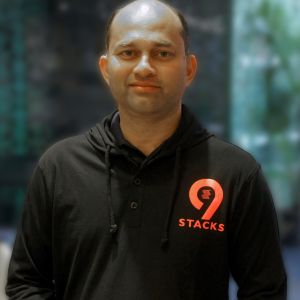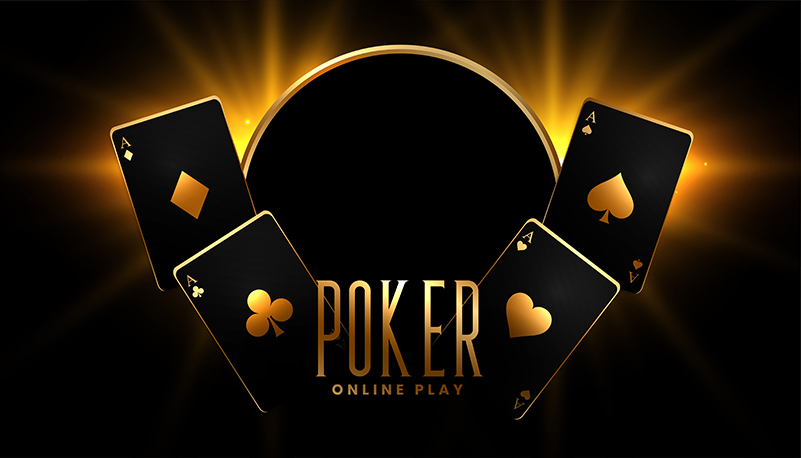Sudhir Kamath, CEO & Co-founder, 9Stacks gives us insights about how he started the online poker gaming.

The revolution in technology has bought changes in almost all industries. And the gaming industry is not left behind. One such is poker, which has created a huge impact on online gamers. The online poker games give the players a lot of flexibility similar to other online games. Sudhir Kamath, CEO & Co-founder, 9Stacks gives us insights about how he started the online poker gaming.
1.) How did the idea of 9Stacks come up?
We started 9stacks about 3 years back. My co-founder Pratik who had headed product and marketing at startups like Zivame and Nykaa is also a keen poker player. He observed that the existing poker sites in the country were far behind in product terms compared to other startups. We decided this was a gap we could target – develop a cutting-edge product that would help attract and retain new poker players, and therefore lead to significant growth of the industry
2.) Tell us about the inception?
At that point, I was running an oil company and making angel investments in startups. My co-founders Pratik and Rishab were both working in the startup world. When we got together, we spent the first few weeks researching the legal / regulatory aspects and conceptualizing the product we wanted to build. Once we were convinced, we all committed to the venture full time, came up with the brand name, invested our capital, etc. It took us about six months to get our product live in the market. In the meantime, we raised our first round of angel funding of 10 crores (entirely from ex-colleagues) and started building our team. Since then, its been a great journey.
3.) How has the digital industry changed the way people play sports?
If I talk specifically about poker, it is been a complete paradigm shift. If you play offline, you can only play one table at a time. If you are playing with friends, it is fine, but the scope is limited. Beyond that, it is difficult to trust the players you are reaching – will you get your money back if you win? Are the cards being dealt with fairly? etc. Online poker offers a vastly better experience – the gameplay and interface is smooth, you can play at a time of your choice, the cards are dealt with a certified algorithm, you can play any number of games in parallel. Indeed, people can consider making a full-time career in online poker using their skills – this is very hard to do offline!
4.) How is 9Stacks contributing to responsible gaming?
We were the first poker site in the country to roll out a full set of features for responsible gaming, and this is something which is very close to our hearts. Our players can set their own limits on how much they deposit, what stakes they play, what kind of tournaments they can participate in, etc. They can also choose to block their account for a duration of time, or even permanently. They can choose what kind of notifications they get, or stop notifications entirely. They can also enable 2-factor authentication to ensure no one else can try to log in to their account. Overall, our emphasis is on giving control to the players, so they are safe at all times. We also have a team that helps them make the choices – e.g., what stakes they should play, depending on the money they want to invest in poker. We also have tools that help them analyze their skill levels.
5.) According to you, how much is poker a skill-based game?
Poker is almost entirely skill-based. The key is to recognize that unlike the movies, poker is not about a great outcome on that one magical hand; rather it is about understanding the probabilities of various combinations occurring, and maximizing your expected value or benefit across thousands of such hands. Regular methodical play underpinned by the rigorous study is the only sure way to succeed at poker. This needs to then be supplemented by an understanding of player psychology, managing your own impulses, managing your financial bankroll, etc. All of these are skills that together ensure you can make money from poker.
The Supreme Court had laid down some tests on what constitutes a game of skill, and poker passes those clearly. You cannot make money in the long run just by chance, and the more you play, the more skilled you become.
6.) Personally, what is your level for playing poker?
I am not a great poker player – I play recreationally and enjoy playing poker with my friends once in a while. On 9stacks, I enjoy playing tournaments 2-3 nights in a week. I would not be among the top 1000 poker players in India, perhaps not even in the top 10,000! By contrast, I am a fairly serious player when it comes to competitive scrabble – I have been ranked in the India top 25 in the past and am currently still in the top 50 in the country. In poker, it’s going to take me many years before I reach that level!
7.) How can a beginner start to learn poker?
Start with the basic rules – they are amazingly simple – there are two cards in your hands, 5 on the table, and you have to make the best 5 out of these 7. There are some rules on which hand is better than others – e.g., a trio will beat a pair; a pair of aces will beat a pair of kings, etc. These rules are explained on our website. Once you read that, the best way to learn is by playing! Do not put in any money, play the free tournaments on 9stacks – there are about 25-30 free tournaments each day on 9stacks! In 3 or 4 days you will understand how to win a few hands. Then it’s time to learn winning concepts – for this, we have a series called P Se Poker on YouTube where a poker pro Sanjay Taneja explains all the important concepts in simple 2-minute videos. Once you are past that stage, it is time to play with some real money and sharpen your own playing style. There are also lots of paid courses available to help you get better. And on 9stacks, there is a skill dashboard to help you analyze the weaknesses in your game. All the best!












